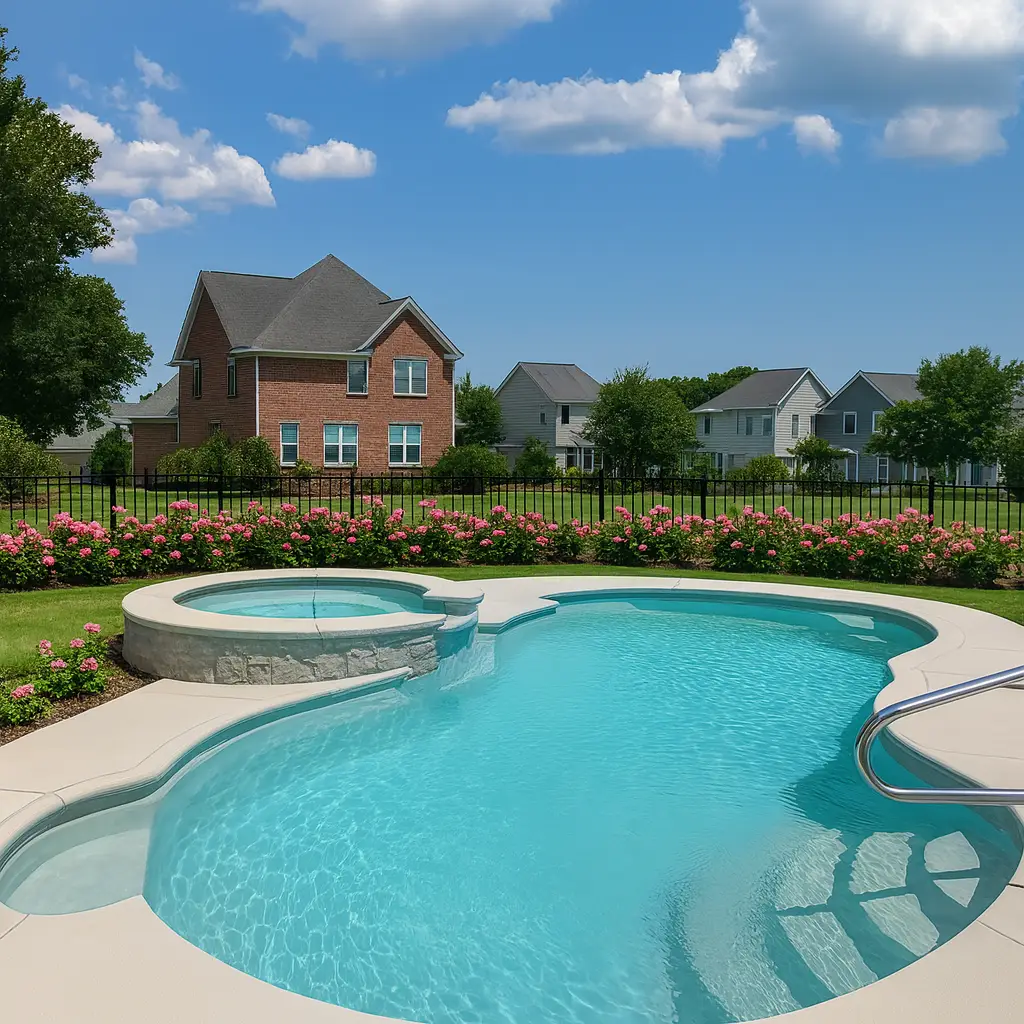Built to Last for Decades
A swimming pool should be a lifelong investment — not a recurring expense. That’s why more homeowners are choosing fiberglass pools from Rainforest Pools, built in America for long-term strength, stability, and peace of mind.
Unlike concrete or vinyl pools that wear out or crack, fiberglass pools are engineered to endure decades of use with minimal upkeep. The result is lasting value and reliability for homeowners across Florida, South Carolina, Texas, and beyond.
1. Structural Integrity You Can Count On
Fiberglass pools are molded as a single, seamless structure.
This eliminates weak points or joints that can leak or fail over time. Each shell is reinforced with multiple composite layers — the same technology used in marine and aerospace manufacturing — ensuring strength and flexibility that outperforms traditional pool materials.
2. Engineered to Flex, Not Crack
Soil shifts. Seasons change. Your pool shouldn’t suffer.
Concrete pools can crack as the ground expands or settles. Fiberglass pools are designed to flex slightly without damage, making them ideal for Florida’s sandy soil, Texas clay, or coastal South Carolina’s moisture-rich terrain.
3. Resistant to Corrosion & Chemical Wear
Fiberglass resists chemical erosion, rust, and salt damage.
The smooth, non-reactive surface stands up to chlorine, saltwater systems, and UV exposure without degrading. Even in coastal environments where salt air corrodes concrete and steel, fiberglass maintains its structure and color year after year.
4. No Resurfacing, Ever
The gelcoat finish stays smooth and bright for decades.
Concrete pools require resurfacing every 10–15 years, and vinyl liners tear or wrinkle. Fiberglass never needs refinishing. A simple cleaning and water balance routine keeps your pool looking like new.
5. UV-Stable and Fade Resistant
Sunlight is no match for modern gelcoat technology.
Rainforest Pools use UV-stable pigments that resist fading and chalking — even under relentless southern sun. The color you choose today will look just as vibrant 10 or 20 years from now.
6. Immune to Algae Growth
A smooth surface means no place for algae to hide.
Unlike porous concrete, fiberglass doesn’t absorb water or allow algae to take hold. The result: fewer chemicals, less scrubbing, and a pool that stays cleaner naturally.
7. Minimal Maintenance, Maximum Longevity
Less work means more years of enjoyment.
Because fiberglass doesn’t need resurfacing, acid washing, or liner replacements, your maintenance costs stay low while the pool’s lifespan extends well past other materials. Many fiberglass pools last 50+ years with basic care.
8. Strength Tested for Real-World Conditions
Each Rainforest pool is engineered and tested for structural load.
From crane delivery to final backfill, every shell is verified for dimensional accuracy and strength. Our fiberglass composites are impact-resistant and withstand extreme pressure — proof of performance before your pool even arrives.
9. Backed by a Lifetime Structural Warranty
Confidence built into every Rainforest Pool.
Your pool is protected by a lifetime structural warranty, covering the shell for as long as you own your home. It’s more than a guarantee — it’s our promise of enduring quality.
10. Value That Endures for Generations
Durability isn’t just about structure — it’s about legacy.
A fiberglass pool adds lasting beauty and value to your property, increasing resale appeal while reducing ownership costs. Decades from now, it will still look elegant, clean, and inviting — a true reflection of American craftsmanship.
The Rainforest Difference
Rainforest Pools combines precision engineering, marine-grade materials, and local installation expertise to deliver pools that last a lifetime.
Strong, smooth, and worry-free — our fiberglass pools are designed for real homeowners, real climates, and real life.
👉 Get your free quote today and discover the long-term durability that makes Rainforest Pools the trusted name in American-made fiberglass.

